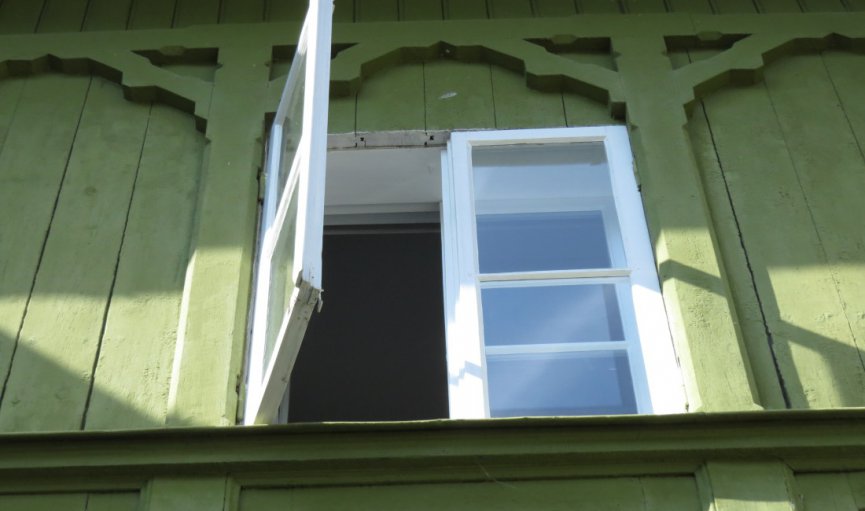Pateicības raksts might be translated into English as a "Certificate of thanks" but such a term misses the subtle and - to me, at least - peculiarly Latvian flavor of the words with raksts meaning something written but also a written contribution, a document and even something woven. Pateicība means gratitude but also evokes goodness (teicība), greetings (teicības) and to my easily-confused ear even a relationship (attiecības), and patience (pacietība).
A Pateicības raksts is typically framed and handed out in batches of up to a dozen to people who have participated in some project or other that has been more or less successfully completed. Probably if someone died or was convicted on criminal charges during the project, Pateicības raksti would not be handed out. But only if the death was avoidable and the conviction was serious.
I don't want it to sound like I am disapproving of or mocking the phenomenon of the Pateicības raksts. In a way it is charming. What is it if not a greatly diluted and localized equivalent of the baroque pomposity of inducting someone into a "Hall of Fame" or making them an "Honorary Fellow" of a self-aggrandizing think-tank? Both are much more egocentric exercises in recognition for doing something you were doing anyway.
It is nice that someone has gone to the trouble of printing a certificate and possibly arranging a ceremony, even if it is couched in pseudo-official language saying that you "contributed significantly to the achievement of" or "participated with distinction in the promotion of" whatever you were supposed to achieve or promote.
One trouble with Pateicības raksti is that they are handed out so frequently. They are less than an award, but more than being ignored. The walls of the LTV building where LSM is headquartered are studded at irregular intervals with Pateicības raksti testifying to the family-friendliness of one department or the fact that another department showed up one day to collect litter. They give some degree of colorful relief from the brown brick walls and it is always interesting to see which minister or official signed them in case you ever need to counterfeit their signature.
While these fly-blown certificates are generally ignored, certain people seem to value a Pateicības raksts rather too highly, as if they are genuine certificates of expertise and qualification. Walking into the office of some town mayor or business executive it is not uncommon to see proudly framed Pateicības raksti adorning the walls in confident geometric rows like medals on a general's chest.
It is a bit like a visit to the doctor: when you see one certificate on the wall confirming this is a qualified and licensed medical practitioner, it is reassuring. When you see an extensive gallery of certificates from institutes and associations with obscure names and ornate wax seals, you start to wonder if the doctor isn't some sort of New Age quack who is about to put you on a combined course of aromatherapy, leeches and trepanning.
To the cynically-inclined there is also a slight suspicion that a Pateicības raksts is handed out in lieu of something more tangible such as a promotion or -- let us dream -- a bonus. "There's no money left for pay rises... give 'em all another certificate," might be the advice from a Scrooge-minded company accountant.
A firm handshake and a look of sincerity as someone says "Thank you" should probably be enough. But I am likely jealous because I have only ever received one Pateicības raksts.
It arrived completely unexpectedly in the post one morning and commended me on my cooperation in making the 2014 Song and Dance Festival a success. This came as a surprise because I wasn't aware of having made any effort to do so. I had written a few stories, but that was my job. They were reasonable stories but they weren't going to win any Pulitzers. They did, however, win me a Pateicības raksts.
While in one way it was flattering -- I was amazed anyone had even suggested my name on the list of possible Pateicības raksts recipients -- it also made me feel as if I had been complicit in something of which I was unaware. It made my stories feel like PR and I wondered if I shouldn't write something a little bit mean and petty instead, if only to prove I could not be influenced by a Pateicības raksts.
And so, four years on, I suppose this is it.
.@Straujuma pateicas nozaru ministriem un darbiniekiem par ieguldījumu @ES2015LV īstenošanā https://t.co/VoZobVlzkP pic.twitter.com/zGQ0lvxY6s
— Valdības māja (@Brivibas36) September 8, 2015
































